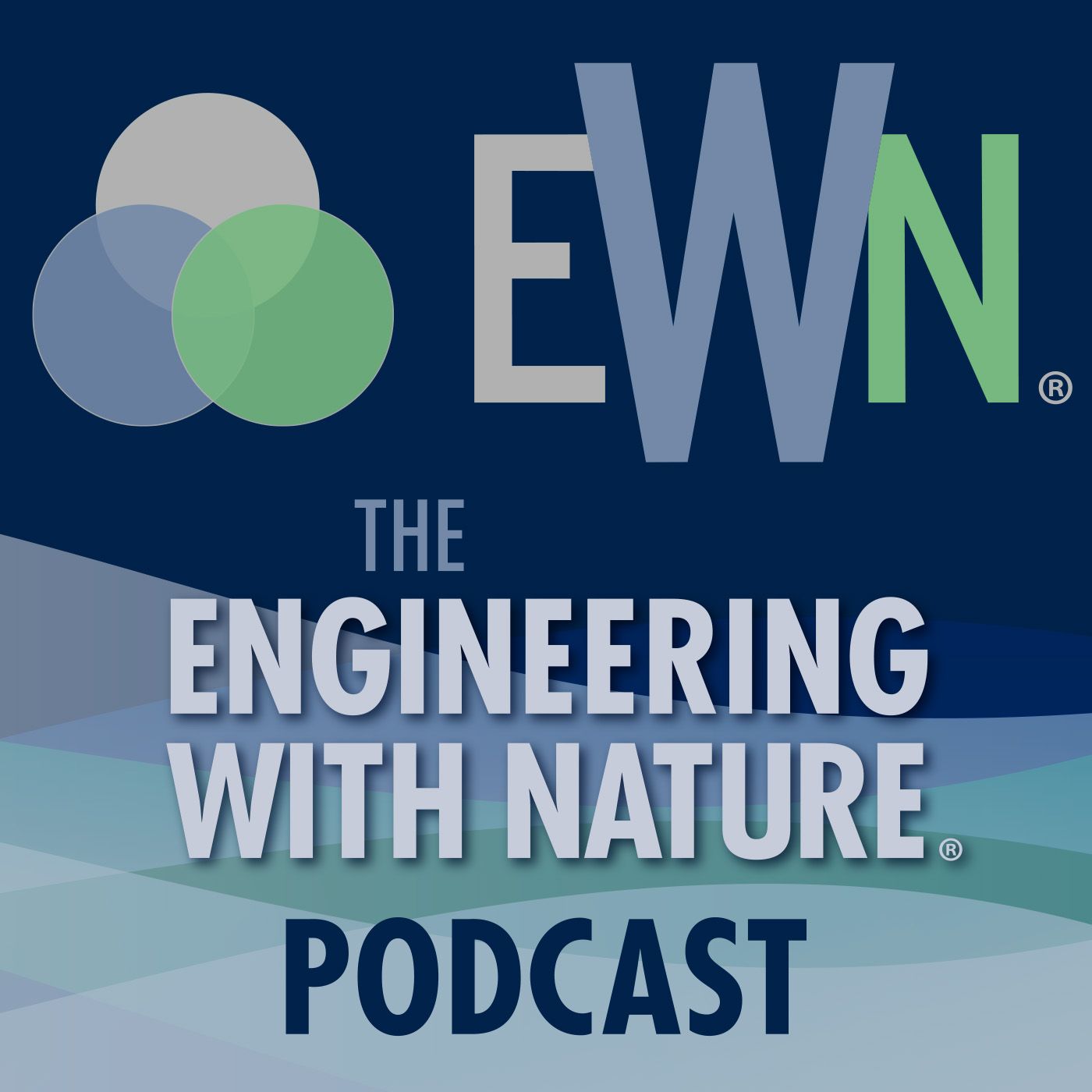A Conversation with Florence Williams about The Nature Fix
Description
Can nature make us happier, healthier and more creative? The simple answer is yes … and it’s been scientifically proven. In Season 6, Episode 10, hosts Sarah Thorne and Jeff King, Lead of the Engineering With Nature® Program, USACE, welcome Florence Williams, a renowned journalist, author, speaker, and podcaster who spent over three years traveling around the world talking with leading scientists about how to quantify the benefits of nature on people’s health and well-being. Florence joins us to talk about her book, The Nature Fix: Why Nature Makes Us Happier, Healthier, and More Creative, and what she has learned on her journey.
As a contributing editor for Outside Magazine, Florence is sometimes assigned stories; but when she was asked to write about the science behind why we feel good in nature, the assignment immediately spoke to her. What started out as a magazine story ended up as a book. In writing The Nature Fix, Florence was motivated by what she calls our “epidemic dislocation from the outdoors,” which involves the shift to moving to cities and simply spending less time outside. Florence notes the growing volume of scientific study in this area. “There’s a ton of mounting evidence. When you consider all these different scales and types of studies, it becomes really, really powerful.”
Florence likes to “witness the science”. The first stop on her journey was Japan, where a physiological anthropologist, Yoshifumi Miyazaki has been studying “forest bathing”. Florence explains “forest bathing is the idea of being in a nature space, almost like sunbathing.” She notes that after just 15 minutes of sitting in the woods or walking around trails there are significant positive physiological changes on metrics like blood pressure, respiration, heart rate, and hormone levels.
On another stop, Florence met with David Strayer, a cognitive neuroscientist. He believed that he got his best ideas after being on the river and became interested in the “three-day effect”—a term coined by a bookseller in Salt Lake City who noticed that some “magic” seems to happen after three days outside. Florence joined Dr. Strayer’s class, Cognition in the Wild at the University of Utah, when they went camping in the desert. “It was a helpful way for me to start to frame some of the theories about what’s going on in our brains and then of course to experience some of it too by spending three days outside.”
When asked about potential learnings for EWN, Florence notes the importance of designing spaces, especially in urban areas, where our senses can come alive in a comfortable way. “When we’re in modern life and in our cities, our senses are assaulted in ways that we just accept and don’t really think a lot about.” On a trip to Seoul, South Korea, she visited the Cheonggyecheon canal that had been redesigned to be a natural space. “They daylighted it and landscaped it and put trees around this canal. Acoustic engineers came up with water features and a walking path. When you descend into this lovely trail, you don’t hear the traffic noise. You hear the sound of water and birds.”
Florence believes that these kinds of urban natural spaces should play a significant role in infrastructure projects. Her call to action is this: “We can construct our lives in a way that helps facilitate our mental health; that should be a priority for all of us and for our children and for our neighborhoods. I really encourage people to get involved with their communities, encourage more trees, more playgrounds, more parks, more recess for kids.”
For more information and resource links, please visit the EWN Podcast page on the EWN website at https://www.engineeringwithnature.org/
· a href="https://www.linkedin.com/in/jeff-king-85195413" target="_blank"...
More Episodes
When we think about the use of nature-based features to increase coastal resilience, the focus is mostly on coasts along the ocean. But what about the Great Lakes? Over the past 10 years, the Great Lakes have experienced both historic high and low lake levels. These extreme fluctuations cause...
Published 11/26/24
Published 11/26/24
In Season 8, Episode 3, host Sarah Thorne and Amanda Tritinger, Deputy National Lead of the Engineering With Nature (EWN) Program, US Army Corps of Engineers (USACE), are joined by Brian Davis, Associate Professor of Landscape Architecture at the University of Virginia (UVA), and Cathy Johnson,...
Published 10/22/24


